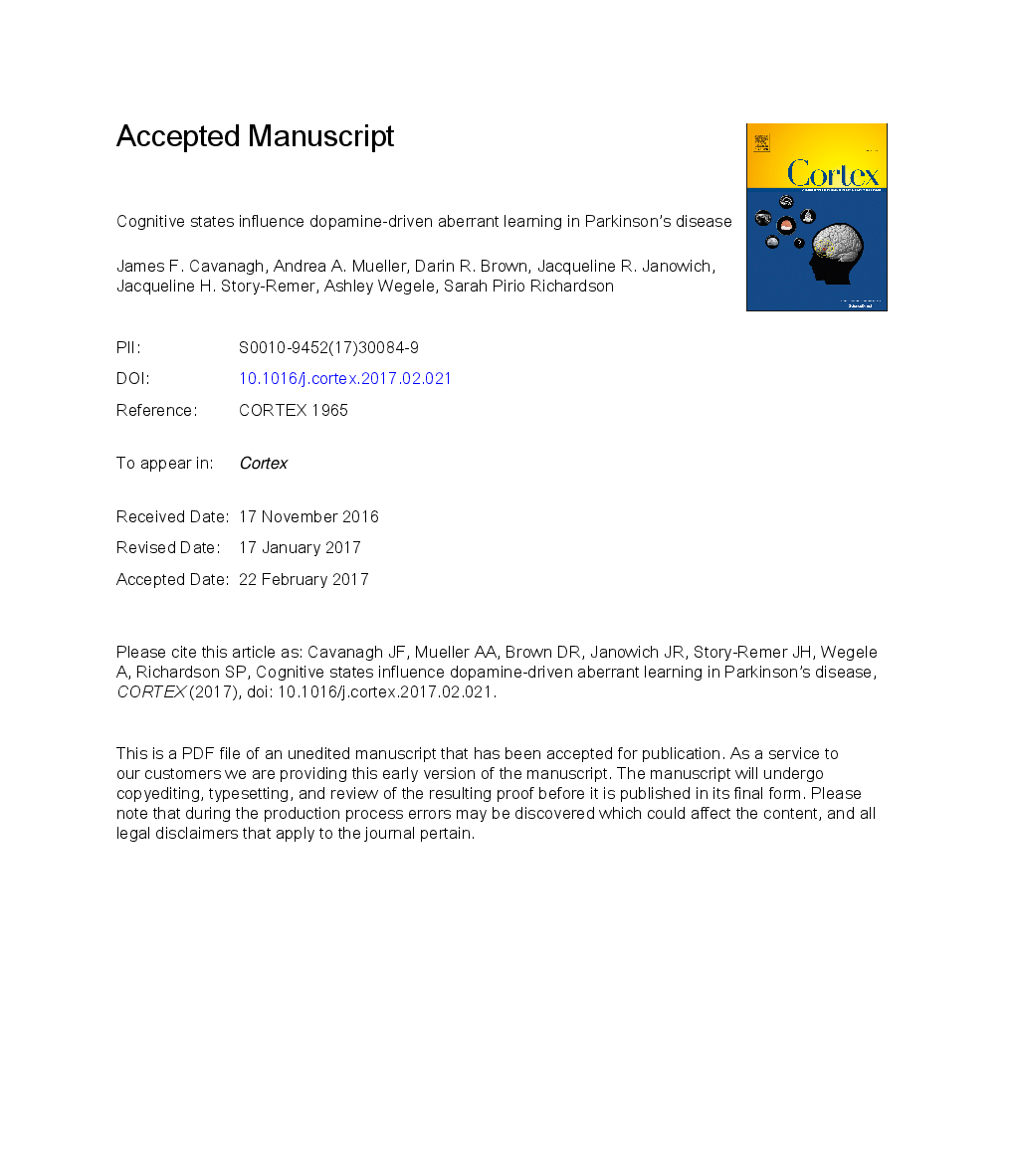ترجمه فارسی عنوان مقاله
در حالت های شناختی، یادگیری غلط مبتنی بر دوپامین در بیماری پارکینسون تأثیر می گذارد
عنوان انگلیسی
Cognitive states influence dopamine-driven aberrant learning in Parkinson's disease
| کد مقاله | سال انتشار | تعداد صفحات مقاله انگلیسی |
|---|---|---|
| 126672 | 2017 | 39 صفحه PDF |
منبع

Publisher : Elsevier - Science Direct (الزویر - ساینس دایرکت)
Journal : Cortex, Volume 90, May 2017, Pages 115-124
ترجمه کلمات کلیدی
بیماری پارکینسون، تقویت یادگیری، دوپامین، تعارض، اهداف،
کلمات کلیدی انگلیسی
Parkinson's disease; Reinforcement learning; Dopamine; Conflict; Volition;

